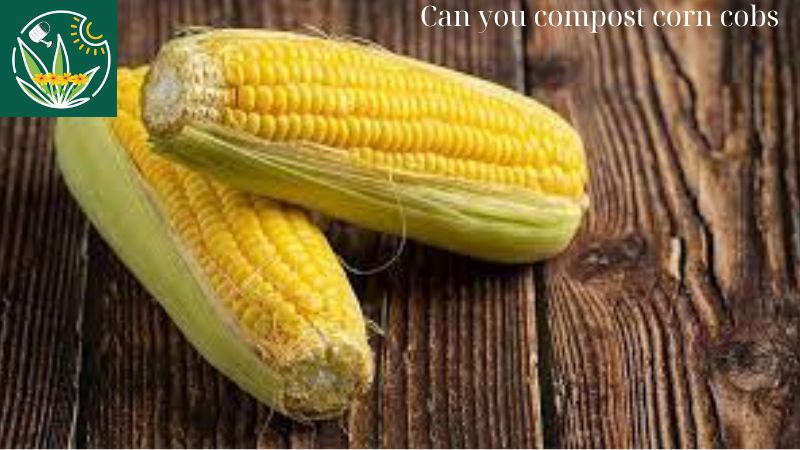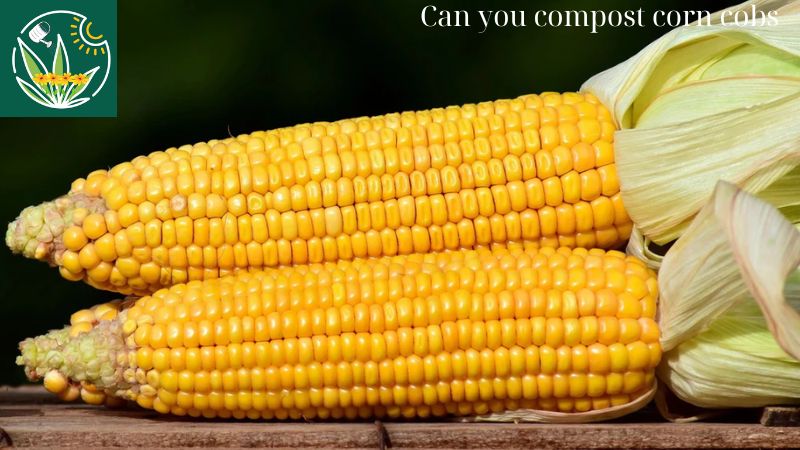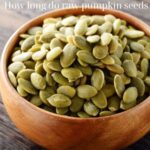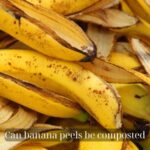Can you compost corn cobs? When you throw away food scraps, you may wonder what you can do with those leftover corn cobs you ate after your favorite meal. Since corn cobs are consumed in large quantities on a daily basis, it’s time to determine if corn cobs are compostable and how best to dispose of food scraps for a good compost with a composting recipe based on the materials ratio.
If you’re looking for a list of other common kitchen and household items that can be composted, check out tree02.com’s detailed guide here.
Can You Compost Corn Cobs?
You can definitely compost corn cobs, as they are biodegradable and keep them out of the landfill. When you add corn cobs to your compost, the nutrients locked in the cobs are released over time, providing a slow source of nutrients to your soil.
Because the cobs are hard, they add a different texture and structure to your compost pile as it decomposes. This can change the decomposition process and moisture content.
For many plants, this is essential because it provides a binder for the compost as it decomposes in the compost bin.
It also helps distribute the right amount of greenhouse gases that your compost needs to balance when it’s time to put it in the garden.
Can You Compost Corn Husks?
If you’re wondering if corn husks are compostable, then yes, they are. Their decomposition time is much different than corn cobs, but that’s due to the texture of the husks. The husks are not as thick as corn cobs, but they tend to dry out plant parts.
When you compost corn husks, you want to add them layer by layer to the compost pile so they don’t clump together in the compost pile. They will retain more moisture this way and then begin the composting process much faster into recognizable pieces.
Can cooked corn cobs be composted?
Like dry corn cobs, composting cooked corn cobs is a great question and can be done. In fact, these are often easier to compost because they retain moisture after cooking.
In many cases, most people just try to throw them in the compost pile, especially if they are small cobs no larger than four inches. They usually decompose faster than dry cobs and eliminate unwanted food waste in the pile and trash.

How to Compost Corn Cobs
When composting corn cobs, you need to make sure you add them in a certain way so that your plants get the most benefits and nutrients from these dehulled parts.
Here are some steps you need to take to make sure you get the most out of your corn cobs.
Cut the corn cobs into smaller pieces. They decompose more easily if they are smaller and they will start releasing nutrients into the soil sooner. If you are trying to decompose them very quickly, you will want to cut them into even smaller pieces.
Don’t dry out the corn cobs you have cooked. You want them to retain moisture when you add them while they are still moist. If they are dry, then they will take longer to start decomposing and take longer to compost.
If you have dry corn cobs, you can put them in water and create a little moisture before adding them to the compost bin. Once you add them to your compost, you will need to turn the compost daily to ensure that the compost moves around and breaks down evenly in the soil. The compost will generate a lot of heat as you continue to turn it, forcing the bacteria that break down the compost to produce at a faster rate.
If you decide to cut the corn cobs, make sure you are careful when cutting. Corn cobs are really hard to cut and can cause your knife to slip when wet.
If you want them to decompose naturally, you can put them in your compost bin at their current size, but it will take much longer to decompose.
The remaining corn cobs can be added to new compost over time made with grass clippings and wood chips. This creates a usable compost where you can add corn kernels, coffee grounds, and other compost materials that create air pockets in the soil.
How to Use Corn Cob Compost
After you have used your corn cob compost, you can redistribute it to your garden and vegetable garden. The structure created by the corn cobs in your compost pile allows the soil to naturally aerate, enriching the soil with nutrients and allowing air pockets to circulate in your garden.
If you decide to keep the corn cobs at their regular size, you will need to make sure to turn the compost regularly and spread them evenly throughout the mix. Too many corn cobs in one area can slow down the decomposition of organic matter.
Once the corn husk and corn cob compost has fully decomposed, you can add them to your garden soil to balance out the organic matter content in the soil.
If the corn cobs have not reached the consistency you desire, simply throw them back in the bin and they will continue the composting process with another batch.
What Is the Duration of Corn Cob Decomposition in Compost?
When asking about composting corn, or are corn husks compostable, you may be wondering how long it takes for these corn parts to fully decompose. The answer depends on how dry they are when they are added to the compost pile and how large they are.
Uncut corn cobs can decompose in six months when mixed with compost. Additionally, corn cobs are balanced in the compost and turned multiple times per week. For freshly cut corn cobs added to wet compost, it can take about half that time, 3-4 months. Corn cobs take longer than corn husks, especially in an open compost pile.
However, if you use a Lomi composter, you may see it decompose in just a few weeks. Here is what it looked like before you added the corn to the Lomi composter.
Just add it to the compost pile and turn it over and over for a few weeks, and it will decompose significantly. This allows you to keep food waste in your kitchen and out of the landfill. Lomi easily sits on your kitchen counter so you can simply add food waste as needed to the pile and start the decomposition process at a much faster rate with less odor.
Conclusion
If you consume a lot of fresh corn and want to find a more efficient way to dispose of your unwanted corn cobs, you can easily compost corn cobs as they are very valuable to the compost and provide an extra layer of texture and nutrients to the compost.






